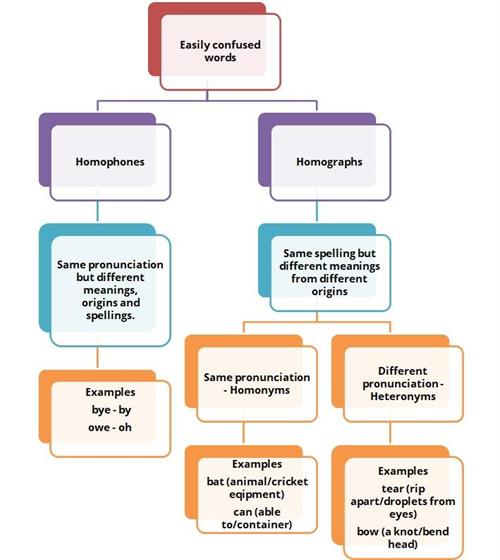
PUMPA - SMART LEARNING
எங்கள் ஆசிரியர்களுடன் 1-ஆன்-1 ஆலோசனை நேரத்தைப் பெறுங்கள். டாப்பர் ஆவதற்கு நாங்கள் பயிற்சி அளிப்போம்
Book Free Demo"Homo" means "same";
"phones" means "sound" or pronunciation;
It can be deduced from the above that:
Homo \(+\) phone \(=\) same \(+\) sound \(=\) Words with same pronunciation but with different meanings.
Homo \(+\) nyms \(=\) same \(+\) spelling \(=\) Words with the same spelling but with different meanings.
A homograph means each of the two (or more) words that are spelt the same but have different meanings from different origins. They may be pronounced the same, or in different ways - if pronounced the same, it is called homonyms.
Example:
Homonyms: (same pronunciation)
1. Bat - animal; Bat - a sports accessory.
2. Fine - a penalty; Fine - good quality or being.
3. Can - able to; Can - a container.

Some homonyms from the "Adventures of Don Quixote" are:
Numbers | Homonyms from the lesson | Meanings |
1. | The ogre is more seriously wounded than I am! | Wound - Injury. Wound - Past tense of wind. |
2. | Did I not give you a fair warning? | Fair - Good. Fair - Exhibition. |
3. | When he saw it, Don Quixote’s eyes began to sparkle | Saw - Past tense of see. Saw - Tool for cutting wood. |
4. | Right there! Don’t you see that awful creature waving its four arms? | Right - Correct. Right - Direction. |
5. | Very well, we shall speak no more of this today. But we need more adventures Sancho. | Well - A hole dug for water. Well - Keeping fine. |
6. | Don tells him that here is undoubtedly a prodigious army marching in their direction. | March - Walking like a military person. March - Month. |
7. | Our names will live on in the memories of generations to come. | Live - Not dead. Live - Stay. |
8. | And together they set out to seek their fortune, Don Quixote eager to be the best chivalrous knight. | Fortune - Riches. Fortune - Luck. |